HS2 station designs unveiled for Curzon Street and Solihull
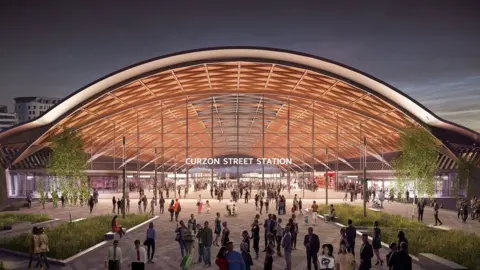 WSP
WSPDesigns for two new HS2 stations have been revealed.
Curzon Street, in Birmingham city centre, will serve the new high-speed route due to be built between London and Birmingham.
Plans have also been unveiled for Interchange Station near Solihull which will be part of a public transport interchange serving Birmingham Airport and the National Exhibition Centre.
Curzon Street is due to open with seven high-speed platforms in 2026.
The Grade I-listed original Curzon Street station will become a visitor centre and offices.
 WSP
WSP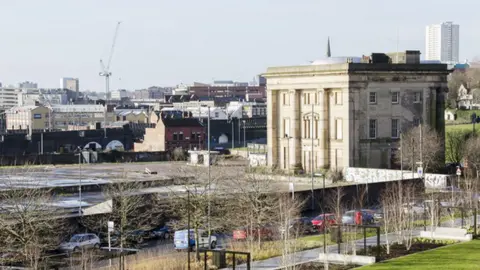
Curzon Street and Interchange Station will be linked to the tram network as well as rail networks to the wider West Midlands, HS2 said.
The designs include office and retail space, hotel accommodation and homes.
The plans will be displayed at Birmingham Library for the public to view and give feedback.
West Midlands Mayor Andy Street said the new stations will be "catalysts for regeneration" and will create jobs in the region.
"Curzon Street station will put Birmingham at the heart of Britain's new high speed network and enhance the rail connectivity for the city, whilst Interchange provides a once-in-a-lifetime opportunity to help drive the growth of the region," he added.
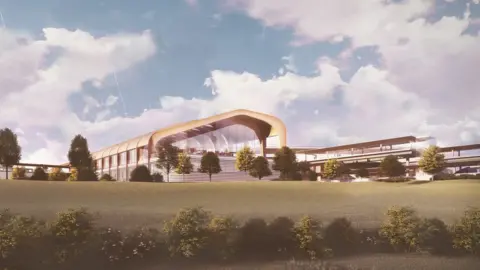 Arup
Arup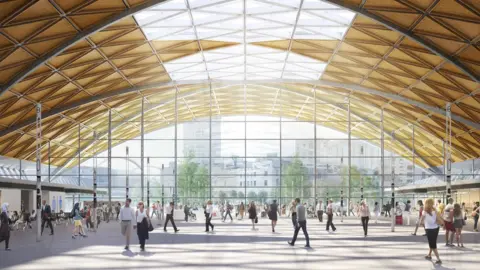 WSP
WSPHS2 is the £55.7bn planned high-speed rail network initially running between London and Birmingham by 2026, before a second phase expands it to Manchester and Leeds.
Work is under way on 60 sites across the route from London to Birmingham.
HS2 chief executive Mark Thurston said: "Preparatory work for the stations is well under way, with a variety of enabling works including the construction of access roads and archaeological investigations."

The history of Curzon Street
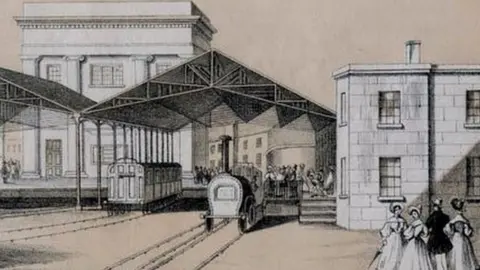 Library of Birmingham
Library of Birmingham- Curzon Street opened in 1838, with links to London. Its Palladian-style architecture was designed to echo that of Euston Arch, where the trains terminated
- Birmingham City Council describes Curzon Street as the world's oldest railway terminus
- However, it was soon overshadowed by Birmingham New Street Station in the heart of the city, and closed as a station in 1966
